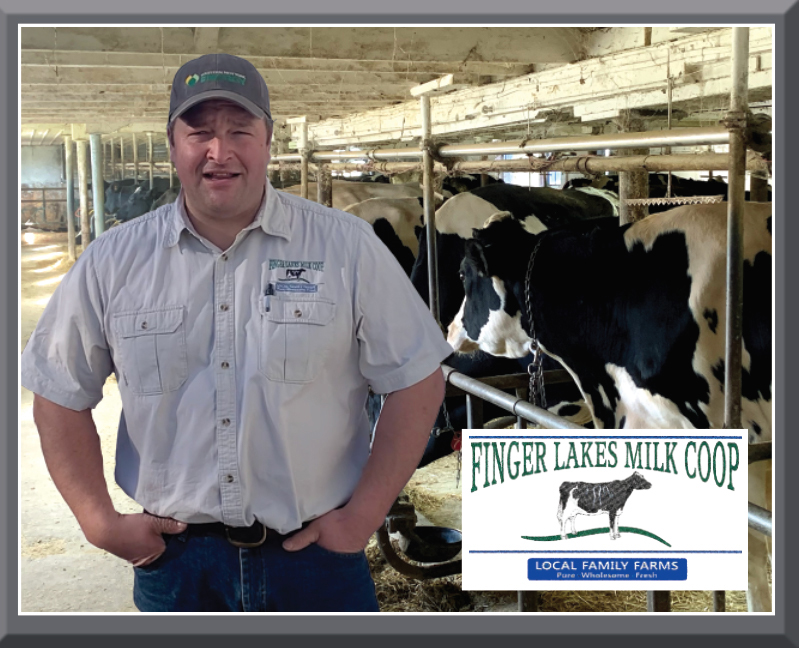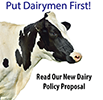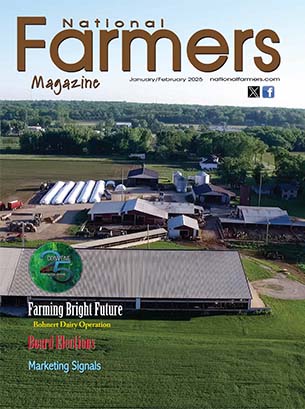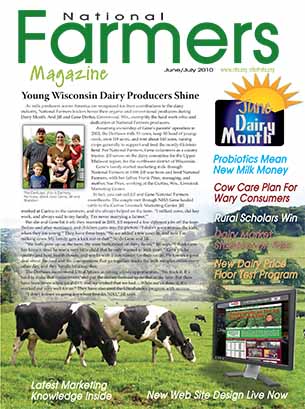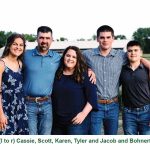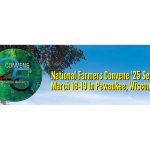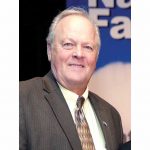In 2018, National Farmers and New York’s Finger Lakes Milk Co-op officials established a relationship, which means National Farmers now pools the co-op’s milk and balances it with the plants, provides farmer payroll services and schedules all loads between the milk plants and the haulers.
“In the fall of 2018, we wanted to add more farms as efficiently as possible, while still getting a good price for the milk,” said Daryl Martin, president of Finger Lakes Milk Co-op. “At that time, we started working with National Milk Sales Director Dick Bylsma, President Paul Olson and Dairy Director Brad Rach at National Farmers,” Martin said. “It has been a pleasure working with everyone at National Farmers. To make a successful business, everyone needs to work together and earn trust and respect to build a great relationship. All of us in agriculture need to work together in the good times, and in the challenging times, including those presented to us during the pandemic.”
National Farmers’ Bylsma said, “I’m happy to be part of providing FLMC members a reliable way for their milk to enter the supply chain smoothly. Their farms are important, too, so we found a way to integrate them into National Farmers processes, and it’s working well.”
The co-op’s area of New York is a region where seven Finger Lakes mark a vast area of land, 14 counties and 9,000 square miles. “It’s a growing area for dairy,” Martin said. “The county where Finger Lakes Milk Co-Op is located, is rich with small family farms. And we’re not going anywhere. It’s a good farming area. Many dairy farms are the 60-cow tie-stall barn style in this area.” Martin himself milks cows on two different farms.
“Daryl Martin is a good co-op leader who wants to assure everything in the co-op worked for the farmers’ best, and I admire that and how he prioritizes quality on his farm and in his co-op,” said Rach. Finger Lakes Milk Cooperative Inc. was founded in 1996, with several small dairy farms in the Finger Lakes area. Through the years, FLMC had grown to around 70 conventional farms and 15 certified organic farms. FLMC milk was first marketed through another dairy group for several years, then contracted to a local private plant.
“Here at FLMC, all our board members are dairy farmers. That’s important, because it helps us stay closer to our producers,” Martin said. “We are very privileged to have the same milk inspector for the past 20 plus years.”
The National Farmers – FLMC partnership makes a lot of sense for three reasons that resonate in the agriculture community and among National Farmers members. It shows the spirit of farmers helping farmers, and the organization has long benefited from sharing agribusiness services with likeminded agricultural entities. Further, expanding National Farmers business lines gives the strength of diversification.
Martin said, “The dairy farmers can focus on their work and the marketing people can do their work,” showing another area where National Farmers and FLMC members, staff and leaders agree. National Farmers President Paul Olson agreed. “Partnerships like this, with other farm or dairy co-ops, organizations or businesses, help the people on the production level of agriculture, who are our top priority,” he said.
Today, National Farmers ultimately provides the dairy business services to the 170 conventional producers and 30 organic producers who are members of FLMC. Conventional producers ship around 20 million lbs. of milk per month, Martin said. “We knew we wanted to move in a direction to assure excellent service for our people, so we reached out to National Farmers dairy leadership,” Martin said. “We were looking for a new option for business services and it’s been working out well for us.”

